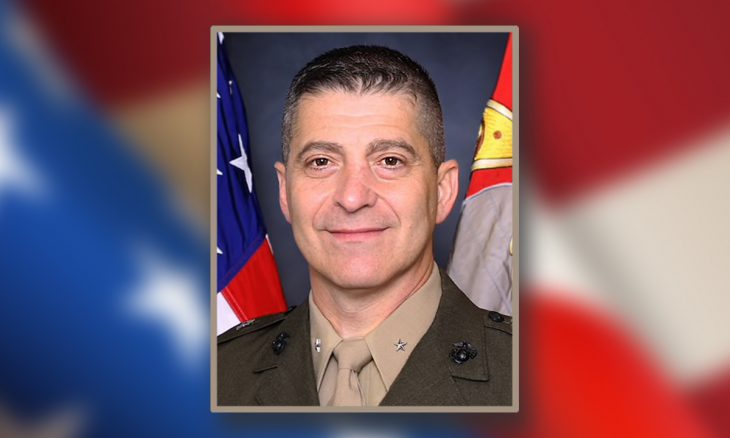Brigadier General Arthur J. Pasagian
Commander, Marine Corps Systems Command
A.J. Pasagian was born in New York City. He is a graduate of the City University of New York, and a number of military courses and opportunities. He holds an undergraduate degree in history and master’s degrees in information technology management and national resource strategy.
After graduating from recruit training at Parris Island, South Carolina, he entered a commissioning program and was commissioned as second lieutenant in 1990.
His assignments include as a logistician in the operating forces, platoon commander, detachment commander, company executive officer, and more expansive commands. He deployed during Operation Continue Hope in Somalia, and in support of Operations Enduring Freedom and Iraqi Freedom. Other assignments include command, control, communications, computers and intelligence commands in Quantico, Virginia. He was assigned as military assistant to the Assistant Secretary of Defense for Acquisition in the Pentagon. He served as Marine Corps Systems Command Chief of Staff for two years.
In 2018, Brigadier General Pasagian was selected as Commander of Marine Corps Systems Command.
In the News…
In its first major reorganization in a century, the Marine Corp will position America’s premier amphibious force to the Indo-Pacific to counter Chinese military activity.
The Marines will organize into smaller units, supported by un-crewed ships and aircraft, precision strike weapons, and small amphibious landing ships. Their goal is to build a force capable of seizing China’s base in the South China Sea.
The revamping will see the Marines trade in their tanks, artillery, and even some F-35s in return for long-range missiles, unmanned boats and anti-ship weapons as they plan to reorient from essentially a second land army to concentrate on amphibious operations in the Asia-Pacific.
Overall, the aim of the Marines’ new littoral concept is to complement a war at sea by taking over enemy positions on land. The Marines would systematically isolate, bombard, and overrun China’s network of artificial islands in the South China Sea, and then set up air defense and anti-ship batteries to make the space around them hostile to Chinese forces. This would restrict the Chinese Navy’s and Air Force’s room to maneuver, pushing them out into the open water—where the U.S. Navy would take them on.
The decade ahead looks to be a period of flat military spending, thanks to COVID-19, a growing national debt, and other economic priorities. Most of all of the nation’s armed services will have to pick and choose the capabilities in which they will invest. The Marines are just the first service branch to make bold trade-offs.









